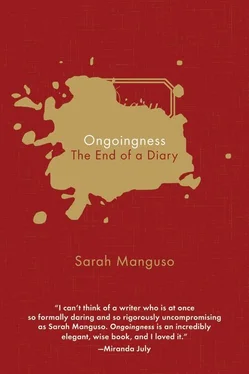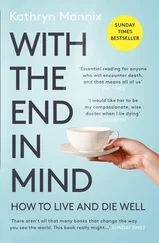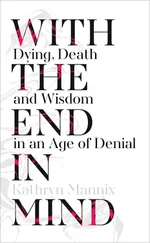The experiences that demanded I yield control to a force greater than my will — diagnoses, deaths, unbreakable vows — weren’t the beginnings or the ends of anything. They were the moments when I was forced to admit that beginnings and ends are illusory. That history doesn’t begin or end, but it continues.
For just a moment, with great effort, I could imagine my will as a force that would not disappear but redistribute when I died, and that all life contained the same force, and that I needn’t worry about my impending death because the great responsibility of my life was to contain the force for a while and then relinquish it.
Then the moment would pass, and I’d return to brooding about my lost memories. ♦
Lives stop, but life keeps going. Flesh begets flesh.
Great cathedrals were built by generations of stonemasons to whom the architect was a man who might once have greeted their grandfathers’ grandfathers. How agreeable, then, to believe in God.
To set stones on stones not for the architect but for eternity.
The Latin epitaph in one seventeenth-century cathedral translates: Reader, if you seek his monument, look around you.
The words are carved in a disk of black marble set beneath the center of the dome. The disk was placed there by the architect’s son.
It’s easy to imagine the great man, but try to imagine the son who knows his father’s cathedral will be loved longer than the flesh of his flesh. ♦
The oldest known cave paintings are thirty thousand years old. Along with abstract markings and pictures of animals, they include images of human hands.
It seems that the painters pressed their hands against the walls, blew pigment from their mouths onto the walls, and then lifted their hands away.
Then they walked out of the cave, marked with red ochre from fingertip to wrist.
The catalog of emotion that disappears when someone dies, and the degree to which we rely on a few people to record something of what life was to them, is almost too much to bear. ♦
Another friend inherited a collection of ceramic bowls that used to belong to her great-great-great-grandmother. I like the fact that they break , she said, so that I can glue them back together.
Before my husband went into surgery to have his shattered nose reconstructed, the anesthesiologist told us she’d give him a benzodiazepine intravenously.
It causes anterograde amnesia, so when my husband whispered I love you directly into my ear, I whispered back, You aren’t going to remember this. ♦
When I became pregnant I struck something mortally. Not just myself, symbolically; my son, actually.
The partly made flesh wriggling inside me was already mortal. ♦
During my pregnancy I couldn’t remember anything. Information seemed to enter my memory and dissolve.
The diary was of no help.
Emerging from the sickening exhaustion of the first few months, I began to see the work I might do next — this, an assemblage of already exploded bits that cohere anyway, a reminder that what seems a violent interruption seldom is. ♦
Goldfish are said to possess legendarily short memory spans, but in fact they can recall information — such as certain sounds — for up to five months, or so one report claims.
I’m told that even a newborn, in its first months outside its mother’s body, remembers the underwater sounds of the womb. ♦
I developed the amnesia that some people call pregnancy brain.
Heavily pregnant when I heard my friend’s father had died two years earlier, I sent condolences at once, hysterically sorry. My friend wrote back. I’d sent a letter two years earlier. I didn’t remember sending it.
Then another friend told me his apartment had been burgled. How lucky that the dog wasn’t hurt! I wrote back. He’d put the dog down months before. I hadn’t remembered that, either.
I scrambled to remember the dead in order — of course an eighteenth-century composer was dead, and all the people who died before I was born. My grandparents all were dead. Recent deaths of those I knew only by their work — a novelist, a monologist. I remembered which of my friends were dead. Another friend’s stepmother, in a coma for years, had died earlier that year. Good , I thought, I haven’t forgotten them all. ♦
When I was almost nine months pregnant, my mother-in-law began receiving hospice care.
My doctor wouldn’t permit me to cross the ocean to see her. My husband didn’t want to miss the birth of our son. And he didn’t want to miss the death of his mother, the woman who raised him.
I drank quarts of raspberry-leaf tea, trying to trigger early labor.
Six thousand five hundred miles away from each other, two unplannable moments prepared themselves.
My husband’s phone rang. It was his stepsister, calling from his mother’s hospital room. Yes , he said. A few moments later he said, Hi, Mom! I hadn’t heard him say it for days. My heart beat hard, as if it knew. ♦
My husband photographs everything: bound hanks of insulated wire on the train platform, clouds at sunset out the jet window, the shape of my foot as I sleep.
When he was fired from his job, he cleared off his hard drives. Then he gave back the company’s computers. That night he discovered he’d forgotten to copy the last photographs he’d ever taken of his mother.
In one of the lost photographs, she holds her head in her hand. She turns toward the glass doors that open onto the porch over the canal. She is skeletal, her body no longer able to derive nutrition from food.
She looks uncharacteristically hopeless, as if the picture represented the moment that she, who had outlived her sudden-death prognosis by five years, would not go on. ♦
She was given twenty-four hours to live on the day I was told my cervix was 50 percent effaced.
Three weeks before her only grandchild was born, she joined her old horse, who had fallen suddenly ill only months before and was awaiting her patiently in the earth. ♦
Then I became a mother. I began to inhabit time differently. It had something to do with mortality. I kept writing the diary, but my worry about the lost memories began to subside. ♦
Nursing an infant creates so much lost, empty time. Of the baby’s nighttime feeds I remember nothing. Of his daytime feeds I remember almost nothing.
It was a different nothing from the unrecorded nothing of the years before; this new nothing was absent of subjective experience. I was either asleep or almost asleep at all times.
Day and night consisted of the input and output of milk, often in an emergency, but the emergencies all resembled each other. At dawn I noticed a pile of tiny damp blankets and tiny damp clothes on the nursery floor, but I never remembered replacing the green shirt with the yellow one.
In my experience nursing is waiting. The mother becomes the background against which the baby lives, becomes time.
I used to exist against the continuity of time. Then I became the baby’s continuity, a background of ongoing time for him to live against. I was the warmth and milk that was always there for him, the agent of comfort that was always there for him.
My body, my life, became the landscape of my son’s life. I am no longer merely a thing living in the world; I am a world. ♦
Читать дальше












